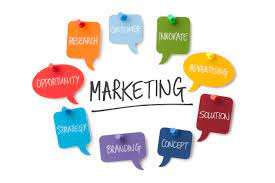With the rise of digital technology, businesses are increasingly turning to online marketing as a primary strategy. However, the effectiveness of online marketing compared to traditional marketing methods remains a subject of debate. In this article, we will examine the effectiveness of online marketing and traditional marketing to help you make an informed decision.

- Reach and Targeting:
Online Marketing: Online marketing offers unparalleled reach and targeting capabilities. Through search engine optimization (SEO), social media advertising, and email marketing, businesses can precisely target specific demographics, interests, and behaviors. Online platforms allow for personalized messaging, reaching a global audience in real-time.
Traditional Marketing: Traditional marketing methods, such as television, radio, and print advertising, generally have a broader reach but lack precise targeting. They can be effective for reaching a wide audience, but the message may not resonate with everyone.
- Cost and Return on Investment (ROI):
Online Marketing: Online marketing often provides a more cost-effective solution compared to traditional marketing. Digital advertising campaigns can be tailored to fit different budgets, and analytics tools allow for precise measurement of ROI. Businesses can optimize their online campaigns and allocate resources strategically based on real-time data.
Traditional Marketing: Traditional marketing methods can be costly, especially for television and print advertisements. Measuring the exact ROI can be challenging, as it relies on estimations and market research. However, traditional marketing may still be effective for reaching specific local markets or older demographics.
- Interactivity and Engagement:
Online Marketing: Online marketing enables interactive and engaging experiences for consumers. Social media platforms, content marketing, and influencer collaborations encourage two-way communication and foster a sense of community. Online campaigns can generate user-generated content and viral sharing, boosting brand visibility and engagement.
Traditional Marketing: Traditional marketing methods often lack the same level of interactivity and engagement. While they can create brand awareness, the ability to interact directly with the audience is limited.
- Flexibility and Agility:
Online Marketing: Online marketing allows for quick adjustments and real-time optimization. Campaigns can be modified instantly based on data analysis and consumer feedback. Businesses can respond promptly to market trends, adapt strategies, and experiment with different approaches, enabling agility and flexibility.
Traditional Marketing: Traditional marketing campaigns require more lead time and are less flexible in terms of adjustments. Changes to print or television advertisements can be time-consuming and expensive, limiting the ability to respond quickly to market shifts.
Both online marketing and traditional marketing have their strengths and can be effective depending on the business’s objectives and target audience. Online marketing offers precise targeting, cost-effectiveness, interactivity, and flexibility, making it a popular choice for many businesses today. However, traditional marketing can still be effective for specific local markets or older demographics. Ultimately, a well-rounded marketing strategy may involve a combination of online and traditional methods to maximize reach and effectiveness. It is crucial to evaluate your target audience, budget, and marketing goals to determine the most suitable mix for your business.









